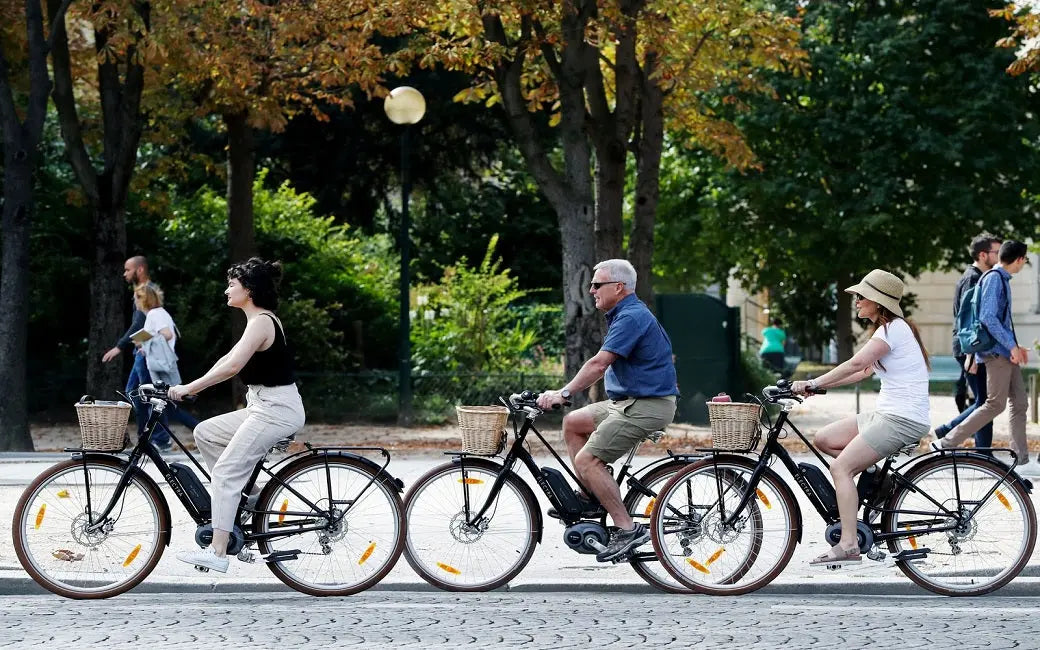
- by HOVSCO Official
How Much Does It Cost to Charge an Electric Bike?
- by HOVSCO Official
How much does it cost to charge an electric bike? Charging an electric bike typically costs between $0.05 and $0.20 per full charge, depending on battery size and local electricity rates. For example, a 500Wh battery charged at $0.16 per kWh costs about 8 cents per charge, making e-bikes an economical and eco-friendly transportation option.
To calculate the cost to charge an electric bike, multiply the battery capacity in kilowatt-hours (kWh) by your local electricity rate per kWh. For instance, a 500Wh (0.5 kWh) battery charged at $0.16 per kWh costs 0.5 × 0.16 = $0.08 per full charge. Chargers are typically 80–90% efficient, so actual costs may be slightly higher. Always check your utility bill for precise rates.
Key factors include battery size, charging frequency, electricity rates, and charging efficiency. Location and usage habits also play roles. Larger batteries or higher local rates result in higher charging costs.
Several factors affect charging costs:
Most e-bike batteries range from 250Wh to 750Wh. A typical 500Wh battery uses 0.5 kWh per full charge. For daily commuters charging 3–5 times per week, annual electricity costs often range from $15 to $25, depending on local rates. This is significantly less than fuel or public transit costs.
Battery Capacity and Cost per Charge Chart
| Battery Size (Wh) | Battery Size (kWh) | Cost per Full Charge at $0.16/kWh |
|---|---|---|
| 300 | 0.3 | $0.05 |
| 500 | 0.5 | $0.08 |
| 720 | 0.72 | $0.12 |
| 1000 | 1.0 | $0.16 |
Popular models like the HOVSCO HovBeta (720Wh), HOVSCO HovCity Step-Thru (540Wh), Rad Power RadRunner (672Wh), and Aventon Pace 500 (614Wh) demonstrate typical charging costs. For example, charging the HOVSCO HovBeta costs about $0.12 per full charge at average U.S. electricity rates, making it affordable for daily use.
Charging an e-bike consumes roughly 0.5 kWh per full charge, comparable to running a 100W light bulb for 5 hours or using a microwave for 30 minutes. Monthly charging costs are minimal, often less than $2–$4 for regular commuters, making e-bikes a cost-effective alternative to cars or public transit.
Charge during off-peak hours, avoid deep discharges, and maintain your battery in optimal health. Using solar panels or power-efficient chargers can also cut long-term charging costs significantly.
While charging is inexpensive, battery replacement is a long-term expense. Most lithium-ion batteries last 500–1000 charge cycles. For example, a $400 replacement battery lasting 800 cycles adds about $0.50 per charge. Even with this, total operating costs remain far lower than gas-powered vehicles.
When selecting an electric bike, consider battery capacity and your local electricity rates to estimate charging costs. Models like the HOVSCO HovBeta and HovCity Step-Thru offer efficient batteries and reliable performance. Prioritize bikes with quality chargers and maintain your battery to minimize costs. Charging at home is usually cheapest; look for incentives or off-peak rates to save further.
“At HOVSCO, we design e-bikes like the HovBeta and HovCity Step-Thru to deliver long-range performance with minimal charging costs. Our efficient batteries and chargers keep electricity use low, making e-bikes an affordable, sustainable transportation choice. Riders benefit from pennies-per-charge operation, combined with powerful motors and durable designs for everyday adventures.”
What is the average cost to charge an electric bike?
Typically between $0.05 and $0.20 per full charge, depending on battery size and electricity rates.
How do I calculate charging costs accurately?
Multiply your battery’s kWh capacity by your local electricity rate per kWh.
Does battery size affect charging cost?
Yes, larger batteries use more electricity, increasing the cost slightly.
Which HOVSCO models are cost-effective to charge?
The HOVSCO HovBeta and HovCity Step-Thru feature efficient batteries with low charging costs.
Is charging at home cheaper than public stations?
Yes, home charging usually offers the lowest rates and greatest convenience.
How often do I need to replace my e-bike battery?
Batteries typically last 500–1000 charge cycles; replacement costs add modestly to overall expenses.
Share:
How To Charge an Electric Bike Battery Safely and Effectively
How Many Watts Does A E-bike Charger Use?